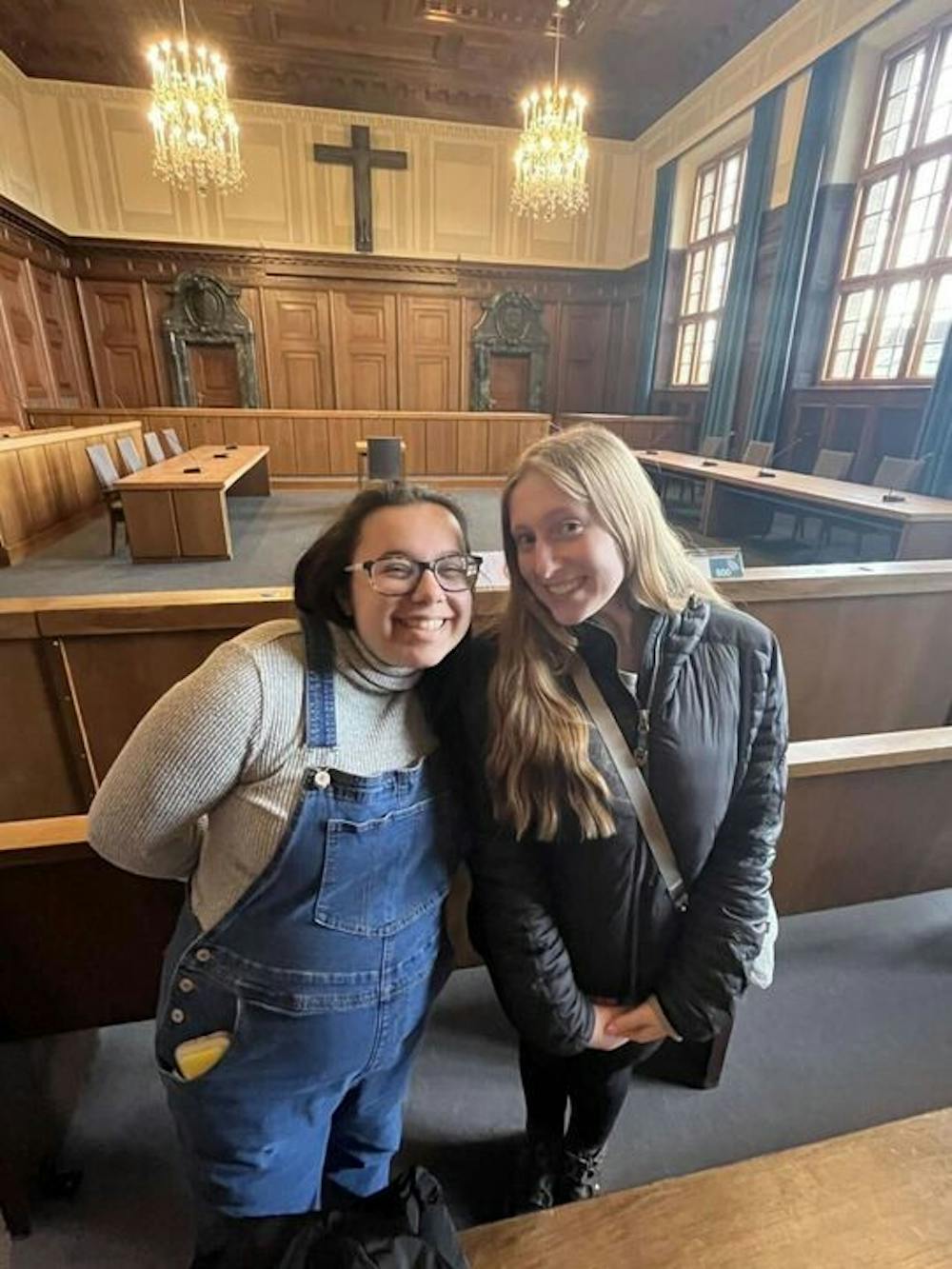Updated as of 12:03 p.m. on Nov. 17 to include comment from Dean of Global Education Nick Gozick.
Elon University has been recognized for the 18th year as the leading university for highest percentage of students who study abroad among doctoral universities, according to the Institute of International Education’s Open Doors Report.
This year also had the highest percentage of undergraduate students who study abroad at Elon in University history at 87.8%.
Doctoral Universities are a Carnegie Classification grouping of higher education institutions.
Additionally, Elon ranked No. 12 nationally among doctoral universities in the total number of students who completed mid-length study abroad programs — a program that is longer than eight weeks and may last up to a whole semester — and No. 26 among doctoral universities in total number of students studying abroad.
The top doctoral universities recognized for the highest percentage of students who study abroad are Elon University, The University of Notre Dame, Wake Forest University, Yeshiva University, Pepperdine University, Yale University, The College of William and Mary and Harding University.
Elon offers study abroad programs during fall, winter and spring semesters.

Anna Okum is studying abroad in Copenhagen, Denmark where she visited the courtroom where the Nuremberg trials were held. Photo courtesy of Okum.
Sophomore Anna Okum said her study abroad trip through Prague, Krakow and Warsaw during winter with Elon was a deciding factor in her decision to study abroad during the spring semester.
“January term abroad trips were a huge draw for me to come to Elon, and as a Jewish Studies minor, the Holocaust Journey trip was absolutely perfect for me,” Okum said. “I used my J-Term abroad to test the waters to see if I really wanted to spend four months in another country, and after loving every minute of my J-term trip, I knew I wanted to go somewhere for a semester.”
Elon provides help with access to study abroad programs through scholarships, events and one-on-one appointments through the Isabella Cannon Global Education Center.
Nick Gozick, Dean of Global Education, said study abroad is an essential aspect of Elon University
“Study abroad is a cornerstone of an Elon education, and it remains one of the top reasons why students choose to come to our university,” Gozik wrote in an email to Elon News Network. “Spending time abroad helps prepare graduates for such a diverse and interconnected world.”
Gozick also noted how the winter term was an essential part of Elon’s success with study abroad programs.
“One key moment came in 1969, when the university transitioned to a 4:1:4 calendar, allowing for the creation of Elon's first winter term program,” Gozik wrote. “The reality is that only about 3% of students study abroad nationally each year, and only 10% of students have a study abroad experience by the time they graduate. The fact that we reached 88% this past year is staggering, and it attests to a long-term commitment on the part of Elon to promote and support study abroad.”
Elon provides short-term programs, affiliate and exchange programs, dual degree programs and other global experiential opportunities.
One opportunity is a partnership with The University of Otago located in Dunedin, New Zealand for students studying in the Dr. Jo Watts Williams School of Education.
Senior Sam Martin studied during the spring semester of his junior year at the University of Otago where he said he fully embraced Kiwi culture and received hands-on experience in a classroom setting.
“Being given the opportunity to immerse myself and learn about a new culture was a powerful experience,” Martin said. “From speaking with locals during our travels, to taking part in Māori cultural experiences, our study abroad opportunity allowed us to dive into the culture of New Zealand.”
Okum said she believes Elon is an advocate for study abroad programs and helps to find programs that are right for students.
“Not everyone wants to, or even can, spend an entire semester away,” Okum said. “So having J-Term trips is a really great way to have this balance of allowing students to experience other cultures for a shorter period of time with more structure.”


